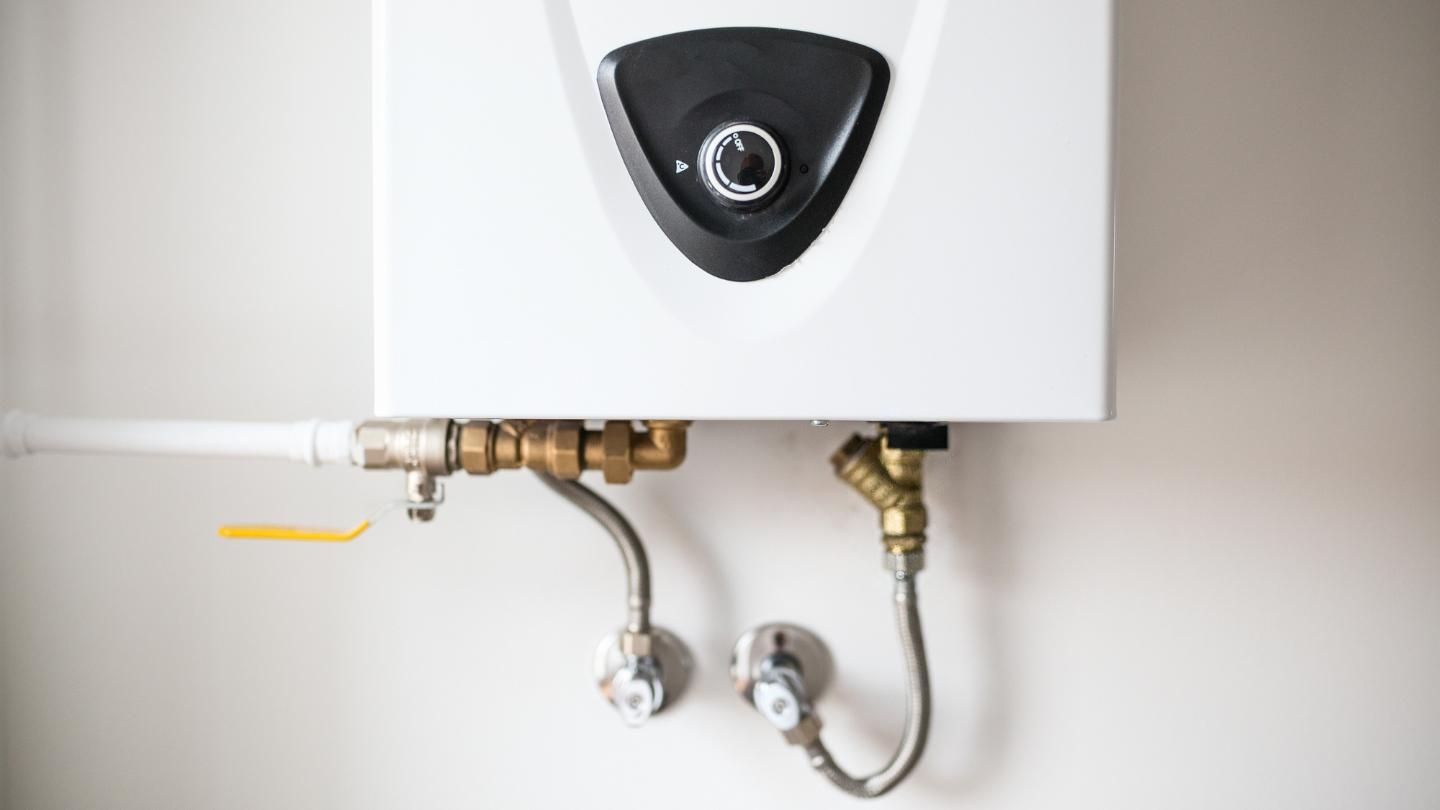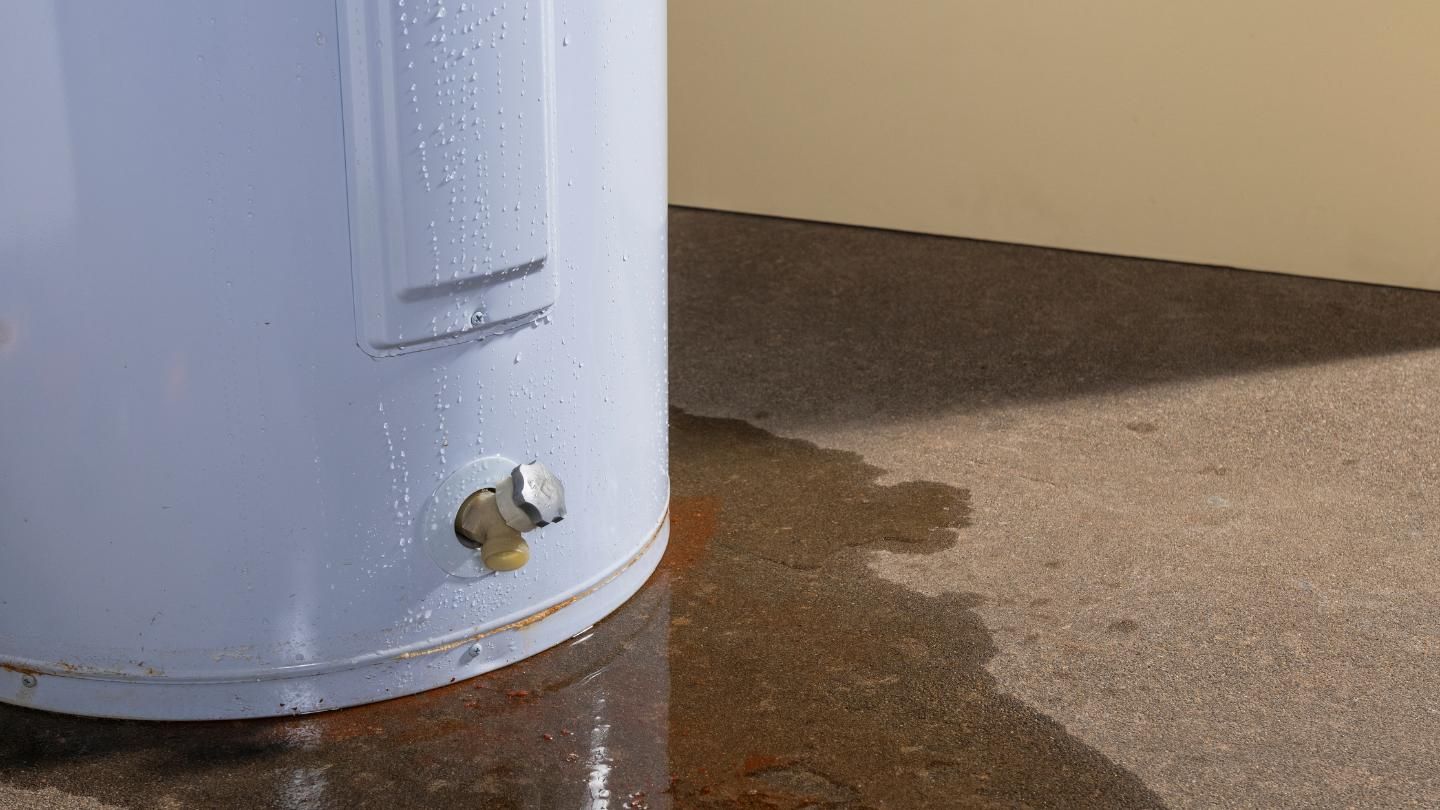Are you worried about your tankless water heater freezing during the
colder months? In this blog, we'll explore professional strategies to protect
your system from freezing, including the importance of utilizing built-in
freeze protection features, selecting an optimal installation location, and the
benefits of expert maintenance. By taking the right precautions, you can ensure
reliable hot water even in the chilliest conditions.
Key Takeaways
- Built-in freeze protection features, when paired with a consistent power supply, are critical for preventing freezing in tankless water heaters.
- Proper installation in warmer indoor locations and professional-grade insulation of pipes greatly reduce the risk of freezing.
- Routine professional maintenance and the addition of a hot water recirculation system increase the reliability and efficiency of tankless water heaters in winter.
Understanding Freeze Protection Features
Tankless water heaters are equipped with essential freeze protection
features designed to keep the unit from freezing in extreme temperatures. These
protective systems typically include electric heaters that help prevent ice
formation within the water heater, ensuring a continuous flow of warm water
even during cold weather.
Some advanced models include battery backup systems that maintain these
protective functions during power outages, safeguarding the unit when
electricity is unavailable. Professional technicians can install or maintain
these systems to ensure they function properly during winter, especially in
regions prone to power disruptions. Additionally, certain units may utilize
internal space heaters and an Air-Fuel Ratio (AFR) sensor, which optimizes
combustion efficiency while further reducing the risk of freezing.
A high-limit switch is another built-in feature of many tankless water
heaters, continually monitoring internal temperatures to prevent overheating
and provide an extra layer of protection against freezing. While these features
significantly reduce the risk of freezing, extreme cold or prolonged power
outages may still pose a threat. That's why it's crucial to rely on
professional services for regular maintenance to ensure that all freeze
protection mechanisms are functioning optimally and ready for the harsh winter
months.
Choosing the Right Installation Location
Selecting the right installation location for your tankless water heater
is critical to protect it from freezing. Because these units lack a traditional
hot water storage system, they are more susceptible to freezing when exposed to
extreme cold. Professional installation services are key to positioning the
unit in an optimal area that minimizes freeze risk.
For optimal protection, tankless water heaters should be installed in
warmer areas within your home, such as basements or utility rooms, where
temperatures remain relatively consistent. These indoor spaces shield the unit
from outdoor elements and prevent exposure to freezing conditions. Installing
units outdoors, especially in colder climates, is generally not recommended.
However, if an outdoor installation is necessary, professionals will ensure
that the unit is adequately shielded from harsh weather, with added insulation
and wind protection to reduce the risk of freezing.
For indoor tankless water heater installations, using a direct vent system is highly recommended, as it minimizes cold air infiltration. This professional setup
ensures that the tankless water heater is protected from the elements while
still receiving proper ventilation. Additionally, if your plumbing runs through
areas like garages, professionals will recommend keeping garage doors closed
and ensuring pipes are insulated. These small yet significant steps reduce the
risk of frozen pipes and ensure that your tankless water heater operates
efficiently, even during frigid weather.
Ensuring Continuous Power Supply
To ensure that your tankless water heater's freeze protection features
remain effective, maintaining a steady power supply is essential. In the event
of power outages, a professional-installed battery backup system ensures that
the freeze protection remains operational, safeguarding the unit from freezing
damage.
If you live in an area where power interruptions are frequent, it's
recommended to have a generator installed as a backup power source for your
water heater. A licensed professional can also install an automatic transfer
switch, which allows the generator to take over seamlessly when the main power
supply is interrupted. This is vital for ensuring that your tankless water
heater continues to function through prolonged power outages, reducing the risk
of freezing during cold spells.
Routine maintenance checks by a professional are also crucial for
ensuring that your battery backup and generator are ready for use during
emergencies. Regular inspections can help identify any issues before they
occur, ensuring that your system remains operational during extreme winter
conditions and preventing any potential freezing issues.
Read more: Main Reasons Why Your Water Heater Is Not Working
Draining the Tankless Water Heater

To safeguard your tankless water heater during winter, proper drainage
is essential, particularly if you're planning to be away for an extended
period. Leaving water inside the unit can lead to freezing, which could cause
significant damage and render the unit inoperable. It's important to rely on
professional services to ensure the system is fully drained and winter-ready.
Start the process by turning off the power supply to the unit and
shutting off the cold-water supply by closing the intake valves. If you live in
an area with frequent power outages, consider having a professional install an
automatic draining system. This system can activate in the event of a blackout,
ensuring that your unit remains protected even if you're away.
Before draining, always open the purge port valves to release any
built-up pressure within the system. Be sure to consult your specific model's
manual, as the drainage procedure may vary depending on the manufacturer.
Following these steps precisely, with the help of a professional, will ensure
that your tankless water heater remains safe from freezing during periods of
inactivity.
Insulating Pipes and Water Heater
Proper insulation is key to preventing freezing in both your tankless
water heater and its associated pipes. Insulating pipes, particularly those
exposed to the elements, can significantly reduce the likelihood of freezing,
making professional installation of insulation a vital step in cold climates.
Exposed pipes should be insulated with UL-listed heat tape or pipe
sleeves. These materials help to maintain temperature stability, reducing the
chance of water freezing within the pipes. For optimal protection,
professionals recommend insulating areas like attics, basements, and garages,
where temperatures tend to fluctuate and are more prone to freezing. Professional general plumbing services ensure proper insulation installation, preventing issues from poor sealing or material choice.
While temporary DIY methods might provide some short-term protection,
it's far more effective to rely on professional-grade insulation. In addition
to pipe insulation, insulating the water heater unit itself with materials like
fiberglass or polyethylene improves overall efficiency and prevents the
internal components from freezing. This approach ensures that your tankless
water heater operates smoothly throughout winter, even during extreme cold
spells.
These professional-grade insulation measures will not only prevent
freezing but also contribute to the efficiency and longevity of your tankless
water heater system. Protecting your investment in this way ensures that your
system will perform optimally, even during the harshest winter conditions.
Keeping Water Flowing

Maintaining a continuous flow of warm water through your tankless water
heater is crucial in preventing freezing, especially during extreme cold
spells. While some may consider allowing a small trickle of water to flow from
the faucet, it's important to emphasize that professional advice and services
are best for ensuring this method is effective and safe. Experts can assess
your system to ensure proper water flow management and avoid any unnecessary
risks.
Allowing warm water to circulate helps prevent freezing by keeping water
moving through the pipes, but it's essential that this is done correctly
without compromising water pressure or system performance. By continuously
circulating water, professionals ensure that your tankless heater and its
piping are protected from the dangers of freezing while maintaining efficiency.
Additionally, experts recommend checking that your faucets are properly
insulated and adjusting water pressure settings as needed. This professional
oversight ensures your heater operates seamlessly through the winter months,
avoiding the risks associated with freezing water while still providing
reliable hot water when you need it.
Installing a Hot Water Recirculation System
Installing a hot water recirculation system is one of the most effective
strategies to protect your tankless water heater from freezing temperatures.
These systems ensure warm water circulates through your home's pipes, reducing
the likelihood of freezing and providing immediate access to hot water at every
tap. However, it's essential to have a professional install the system to
ensure it works efficiently and integrates properly with your existing
plumbing.
A professional can help you choose the best recirculation system for
your home, whether you have an existing return line or not. These systems
usually range in cost between $200 and $400, depending on the specific setup
and materials used. While this investment adds an extra layer of protection
against freezing, it also improves overall comfort by reducing wait times for
hot water and minimizing water waste.
Additionally, a recirculation system helps maintain the warmth of your
pipes, effectively guarding against freeze-ups during severe cold weather.
Professionals can ensure the system is installed correctly, keeping your home's
plumbing protected and your water heater running efficiently throughout winter.
The installation of such a system not only shields your tankless heater but
also helps reduce heating costs by maintaining consistent water temperature.
Professional Maintenance and Services
To ensure your tankless water heater remains functional and safe from
freezing, it's important to rely on regular professional maintenance. Certified
and insured plumbers can conduct comprehensive inspections, identifying any
potential vulnerabilities in your system. Routine maintenance checks are
essential to guarantee the functionality of freeze protection mechanisms,
battery backups, and generators, ensuring the system will continue to operate
during power outages.
In the event of frozen pipes or a damaged tankless water heater, a professional plumber can assess the situation and provide prompt water heater repair or replacement services. This timely intervention is critical in preventing more
significant issues and expensive repairs down the line. By relying on
professionals for regular maintenance and timely repairs, you can extend the
lifespan of your tankless water heater and avoid disruptions caused by freezing
weather.
Read more: How to Extend the Life of Your Tankless Water Heater
Additionally, professional maintenance services ensure that all
components are operating at peak efficiency, safeguarding your home's hot water
supply even during the coldest months. With expert care, you'll enjoy peace of
mind knowing that your system is ready to perform when you need it most.
Summary
To protect your tankless water heater from freezing, it's essential to
utilize its built-in freeze protection features, select a suitable installation
location, maintain a continuous power supply, and properly insulate the unit
and pipes. Incorporating a recirculation system to keep water flowing further
enhances freeze-prevention measures.
For expert maintenance and professional plumbers in Kennesaw, A-Total Plumbing - An Ace Home Services Company is your go-to solution for a tankless
water heater near Kennesaw. Our dedicated team is committed to ensuring your
tankless water heater operates efficiently during the coldest months. With Ace Home Services, you can feel confident that your system is in safe hands, providing peace of mind for all your plumbing needs in operations across Acworth, Marietta, Smyrna, Bartow County, Cobb County, Roswell, and, Alpharetta. Ready to keep your water
warm this winter? Contact us today!
Frequently Asked Questions
1. How can I tell if my
tankless water heater is at risk of freezing?
Check if the unit's freeze protection is functioning properly and
monitor temperatures in areas where the heater and pipes are installed. If you
experience power outages or unusually cold conditions, take extra precautions
like insulation or draining the system.
2. Can I install a tankless
water heater outside in cold climates?
It's not recommended due to exposure to harsh weather. If an outdoor
installation is necessary, ensure proper shielding and insulation to protect
the unit from freezing temperatures.
3. Will running a small
stream of water through the heater prevent freezing?
Yes, allowing a trickle of warm water to flow through the system can
help prevent freezing by keeping water circulating and reducing the likelihood
of blockages in the pipes.

